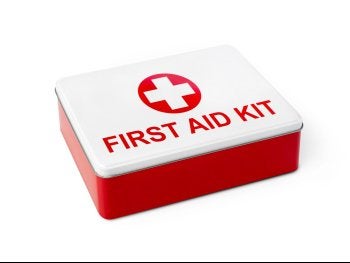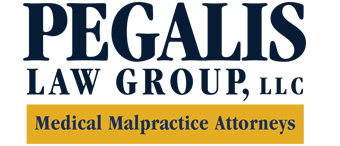-
What Is Medical Malpractice?
 Medical malpractice is a term that can refer to a wide range of different cases in which a health care provider provided care that caused injury, harm, or death to a patient as a result of negligent or substandard care practices. More specifically, a doctor who has committed malpractice may have provided an inaccurate diagnosis, prescribed the wrong medication dosage, or failed to provide proper aftercare in a surgical procedure. While some cases of malpractice may be clear, other patients may not realize that they have been affected by negligence.
Medical malpractice is a term that can refer to a wide range of different cases in which a health care provider provided care that caused injury, harm, or death to a patient as a result of negligent or substandard care practices. More specifically, a doctor who has committed malpractice may have provided an inaccurate diagnosis, prescribed the wrong medication dosage, or failed to provide proper aftercare in a surgical procedure. While some cases of malpractice may be clear, other patients may not realize that they have been affected by negligence. Because medical malpractice is so complex, patients might consider speaking with a malpractice attorney whenever medical treatment results in physical or mental harm. Doctors are not responsible for all harms suffered by patients, as some risks are unavoidable, but patients may not always immediately realize the errors that could have occurred in their care.
At Pegalis & Erickson, LLC, you can discuss the details of your malpractice case with a free consultation with our experienced Long Island team. To get a closer look at our previous successes and specific examples of malpractice cases, visit our website or call us at (516) 684-2900.
-
Important Questions to Ask Before Surgery
From complex open surgeries to minimally-invasive laparoscopic procedures, every surgery has associated risks. Your surgeon and other members of the care team should serve as resources to help you minimize surgical risks, but certain situations can leave patients uninformed, resulting in medical negligence that leads to serious complications. To be sure that your surgical team is held accountable with higher standards of care for your upcoming procedure, ask the following questions during your pre-surgical consultation.
 Is this operation necessary?
Is this operation necessary?
You may be surprised how often surgery is recommended when alternative treatment modalities could produce equally effective results. Orthopedic surgeries in particular tend to be primarily elective surgeries, so it is always best to ask if a procedure is the best route for your treatment. If you are still unsure after consulting your surgeon, you can always seek a second opinion from another doctor.Who can I contact for follow-up questions?
It is likely that your surgeon will have a nurse coordinator or surgical liaison who will serve as the primary point of contact for your care, but surgeons in smaller practices will prefer direct communication. You should make sure that you know the preferred way to contact your surgeon after surgery so that you are able to ask questions as they come up in your recovery. You’ll also want to know if your surgeon will need to see you for follow-up appointments or if post-operative care can be left to your primary physician.What can I do to improve the outcome of surgery?
There are several steps that patients can take to improve their care. For example, quitting smoking and eating a healthy diet before and after surgery can significantly shorten the healing process and reduce complications. Discussing your medications with your doctor is also helpful, since certain medications and supplements might have adverse side effects with the surgery.If you have had medical complications or lost a loved one due to medical negligence, contact Pegalis & Erickson, LLC at (516) 684-2900 to schedule a free consultation. Our Long Island practice has more than 40 years of experience representing plaintiffs in medical malpractice cases, and we can help you seek the compensation you deserve for your case.
-
Essential First Aid Kit Items You Should Keep on Hand
Stay Safe Out There! Here is a list of the essential first aid kit items you should keep handy whether home or away.

- A list of medications you take with dosages
- An index card, preferably laminated that notes your emergency contact, doctors name and phone numbers, hospital preference, allergies, medical conditions, and blood type.
- Antiseptic ointment or spray
- Hand sanitizer
- Non latex gloves
- Tweezers to remove splinters or ticks
- Aloe Vera gel or burn spray
- Hydrocortisone cream
- Adhesive bandages, non stick gauze pads in small and large sizes, and a roll of first aid tape
- Triangle bandage
- Dissolvable Aspirin
- Instant Cold compress
-
Why You Should Familiarize Yourself with Procedures Before Surgery
In a perfect world, doctors would keep their patients fully informed and in-the-know about their care so that complications and risks are managed effectively for optimal patient safety. Unfortunately, patients are often undereducated on the surgical procedures that doctors might recommend. Therefore, you may need to explore your own resources with plenty of questions in pre-surgical consultations and online research to inform you about a given procedure. Below you can see exactly why you will want to invest the time to get to know a surgical procedure before you go under the knife.
 Understand possible surgical risks.
Understand possible surgical risks.
There is no surgical procedure that is without risks, even with modern advances in surgical care. Not only will you want to know which risks are a possibility with your surgery, but you will also want to explore ways that these risks can be minimized.Assess the success rate of past procedures.
When you investigate the success rate of a surgical procedure, you will want to look into both the national average and the success rates of a specific hospital or surgeon. In a recent investigation of a Florida hospital, fatalities resulting from pediatric open heart surgery occurred at a rate more than 9% above the national average, yet patients were completely uninformed of these numbers. That means that you should rely on more than just your doctor’s word when you are assessing the risk of a surgical procedure.Explore alternative treatment options.
One important factor to consider with any surgery is whether the procedure is completely necessary. In some cases there are alternative therapies available, and it is always worth the time to seek a second opinion so that you may make the most informed decisions about your care.In the event of surgical complications or fatalities, patients are often told that these outcomes were the result of unavoidable risks when medical negligence has actually occurred. With Pegalis & Erickson, LLC, you can find justice in your case with the compensation needed to cover the costs of your care. To contact our Long Island office for a free consultation with our team, call us at (516) 684-2900 today.
Recent Posts
Popular Posts
categories
- Uncategorized
- Infographic
- Patient Safety
- Patient Health
- Stillbirth
- Birth Injuries
- Medical Malpractice
- Medical Negligence
- Event
- Erb's Palsy
- Injury
- ER
- Video
- Cancer Misdiagnosis
- Medication Errors
- Cerebral Palsy
- Medical Negligence Lawyer
- Anesthesia Injuries
- Brachial Plexus
- Prostate Cancer
- About Us
- Men's Health
- Skin Cancer
- Breast Cancer
- Misdiagnosis
